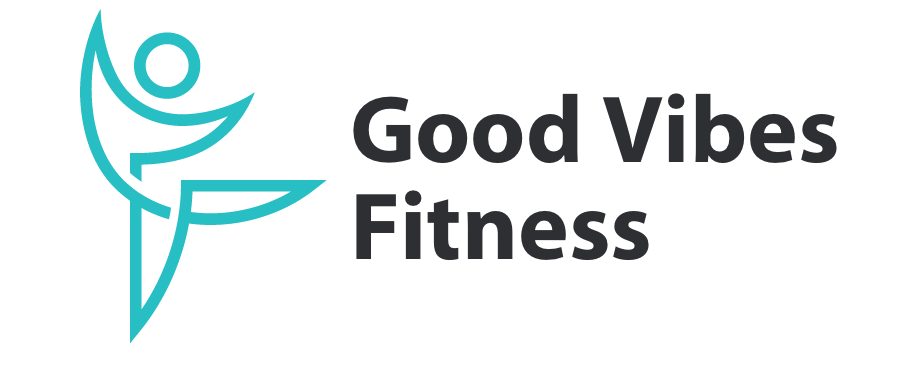Almost everyone has heard of vitamin C and is aware of its importance to our health, but do you know why you need vitamin C?
Vitamin C is an essential vitamin, which means your body cannot make it. Nonetheless, it serves several functions and has been related to numerous health advantages. It is water soluble and may be found in a variety of fruits and vegetables, including oranges, strawberries, kiwi fruit, bell peppers, broccoli, kale, and spinach.
Vitamin C is prescribed at 75 mg per day for women and 90 mg per day for males. Are you curious about what vitamin C may do for you? In this helpful guide, you’ll learn about some of the top vitamin C advantages.
What Are The Health Benefits of Vitamin C? – Why You Need Vitamin C?
Here are 8 scientifically confirmed health benefits of taking vitamin C.
1. Metabolism boost – We all know that having a good metabolism combats feelings of fatigue and gives your confidence that much-needed boost! But when you are missing essential vitamin C from your diet, your body has to work so much harder to process all your unused energy.
Your metabolism grounds to a slow plod and that unwanted feeling of fatigue rears its ugly head. In short, Vitamin C is that fantastic nutrient that helps you absorb other essential vitamins, minerals, and micronutrients. Without it, your body’s natural processes cannot function correctly, and you would get very sick as a result.
2. Take a look at your diet – Vitamin C is an essential vitamin. It’s all part of the fundamental glue that keeps your body and mental health in check. The easiest way to see if you are getting enough vitamin C in your diet is to take a good look at what you eat every day. To give you an idea of where to begin, we’ve compiled a handy list of go-to fruit and veg:
- Citruses – oranges, orange juice, limes, lemons – you get the gist!
- Berries – strawberries, blueberries, raspberries, blackberries
- Kiwis
- Green leafy veg – spinach, kale – all the yums!
- Bell peppers
- Broccoli
- Potatoes, sweet potatoes
Diet alone should be enough to take care of your daily intake.
Sometimes though, we all need an extra boost. If you want to brighten up your skin, shake off fatigue or keep your immune system in check, taking a daily vitamin C supplement will give you what you need.
3. Scurvy – it’s not just for pirates! – Swollen, sore and bleeding gums can all be signs of a lack of vitamin C in your diet. Although it’s incredibly rare these days, scurvy is still the tooth-rotting disease made famous in the old pirate stories.
When your body is deprived of vitamin C for more than three months, there are some symptoms to keep an eye out for. These include:
- Feeling extremely tired and weak all the time
- Feeling irritable and sad all the time
- Swollen, bleeding gums – a tooth may have fallen out!
- Your skin bruises easily
- Severe joint or leg pain
- Red or blue spots have developed on your skin (keep an eye on your shins)
If you notice any of these symptoms, contact your GP as soon as possible.
4. A powerful antioxidant – Vitamin C is the superhero of the vitamin world. It’s a powerful antioxidant that helps strengthen your body’s natural defences and gives your immune system everything it needs to battle illnesses.
Our immune systems work tirelessly all around the clock. It fights off free radicals that are continually finding ways to break down cells throughout your body and the collagen that holds your very fabric together.
While there’s an all-out war waging inside your immune system, antioxidants like vitamin C are helping to repair the damage left in the free radical’s wake. Antioxidants reduce the threat from viruses and bacteria while strengthening your body’s natural defences. It’s a powerful case for keeping your vitamin C levels in check, don’t you think?
5. Natural collagen booster – Woven between each of your skin cells, collagen is an extraordinary protein that provides structure to your skin and allows your blood to clot. As you age, collagen production slows down. Wrinkles and fine lines start to appear, and your youthful, glowing skin is a near-distant memory.
Now one of the beauty industry’s go-to vitamins for improving your skin’s appearance, it’s infused in everything from moisturisers to serums.
Combined with your daily skincare routine, applying vitamin C topically to your skin will encourage collagen production, and reduce wrinkles and blemishes.
6. Micronutrient support – Iron is one of the vital micronutrients that our bodies desperately need to function properly. Like vitamin C, iron is not naturally produced by you, instead, it needs to be absorbed into your body from your diet.
Vitamin C and iron go hand in hand. Without it, iron cannot support your oxygen-carrying red blood cells to keep your body in check.
A lack of iron in your diet can have hazardous effects on your health and well-being. You can experience anaemia, shortness of breath, dizzy spells, brittle nails and fatigue. In short, you can get poorly very quickly.
So, be a friend to iron and make sure you give it all the vitamin C support it needs to work!
7. Lowers blood pressure – One of vitamin C’s incredible benefits is how it works with your kidneys to lower your blood pressure. It works as a diuretic to help remove more sodium and water from your body, all while relaxing your blood vessel walls.
When you have a healthy diet that ticks all the right vitamin C boosting points, your chances of a stroke and increased cardiovascular health are reduced.
8. Great post-workout – Not only is vitamin C a powerful antioxidant, supports iron absorption and makes your hair and skin look radiant, but it is also great at repairing damaged body tissue. It’s also vital for maintaining your cartilage, bones and teeth.
So every time you work out, keeping up your vitamin C intake will help your muscles to rest and rebuild.
How Much Vitamin C Is Enough?
Now that we’ve discussed the health benefits of vitamin C, let’s look at how much you need to keep healthy. You should obtain enough vitamin C if you eat a healthy balanced diet that includes lots of fresh fruits and vegetables. Our bodies, however, are unable to produce or retain vitamin C. If you aren’t getting your 5 a day, you may need to reevaluate your diet or start taking a supplement. Track your food intake for a few days to check if you’re meeting the required vitamin C levels:
Adults:
Male – needs a minimum of 90mg of vitamin C a day
Female – need a minimum of 75mg of vitamin C a day
Children:
1-10 years – 30mg of vitamin C a day
11-14 years – 35mg of vitamin C a day
15 years and older – 40mg of vitamin C a day
How to Get More Vitamin C in Your Diet?
This antioxidant may be found in a wide range of fruits and vegetables. Citrus fruits, green peppers, strawberries, tomatoes, broccoli, white potatoes, and sweet potatoes are the foods highest in vitamin C.
Dark leafy greens, cantaloupe, papaya, mango, watermelon, brussels sprouts, cauliflower, cabbage, red peppers, raspberries, blueberries, winter squash, and pineapples are other good sources.
Here are 8 simple methods to include more fruits and vegetables into your daily diet:
- Pureed or grated fruits and vegetables can be used in muffins, meatloaf, and soup dishes.
- Always keep cut-up fruits and vegetables available for a fast snack.
- Frozen fruit slices are a refreshing summer treat.
- All of your sandwiches and wraps should have dark lettuce, tomatoes, and shredded broccoli slaw.
- Consume fresh vegetables with hummus, low-fat dips, and salsa.
- Fresh or frozen berries can be used for muffins, pancakes, cereal, and salads.
- For a quick snack, toss a handful of dried fruit on top of your cereal or place it in a baggie with almonds.
- As a full and low-calorie mid-afternoon snack, sip a glass of vegetable juice.
The Bottom Line
Vitamin C is a water-soluble vitamin that can only be gained from food or supplementation. It has been associated with several outstanding health advantages, including increasing antioxidant levels, decreasing blood pressure, preventing gout episodes, enhancing iron absorption, boosting immunity, and lowering the risk of heart disease and dementia.
Overall, vitamin C pills are an excellent and straightforward method to augment your vitamin C consumption if you are not getting enough from your food. Vitamin C is vital to your health and well-being.
It keeps your body functioning properly, supports other micronutrients and heals your wounds. A silent partner to our immune system’s natural defence, it’s one of the essential vitamins to keep in check. How will you boost your vitamin C intake?

